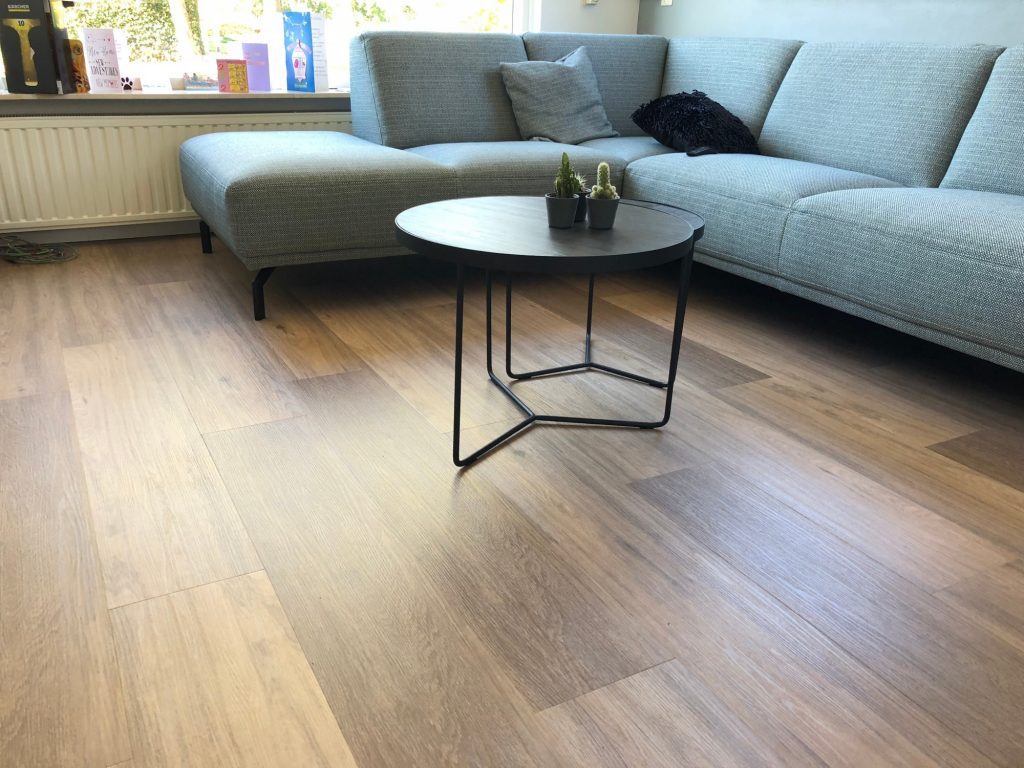What Are the Pros and Cons of Vinyl Flooring?
Vinyl flooring has undergone a remarkable transformation, evolving from its functional roots into a sophisticated and versatile flooring option. No longer limited to basic designs, vinyl now offers a stunning array of styles, colours, and textures to complement any interior design aesthetic. Its practical benefits, including durability, water resistance, and ease of maintenance, have made it a popular choice for homeowners and businesses alike.
Our guide will delve into the advantages and disadvantages of vinyl flooring, exploring its various types, installation process, and care requirements. By the end, you’ll have a clear understanding of whether vinyl flooring is the right fit for your home or workspace.

The Benefits of Hard Vinyl Flooring
Exceptional Durability
Vinyl flooring is engineered to withstand heavy foot traffic, making it ideal for bustling areas like kitchens, hallways, and family rooms. It’s resistant to scratches, dents, and stains, ensuring it maintains its appearance over time. The wear layer, a protective top coat, determines the flooring’s durability. Thicker wear layers offer superior protection.
Easy Care
Vinyl flooring is outstanding for its low maintenance requirements. Routine sweeping and mopping are usually sufficient to keep it clean. Its water-resistant nature makes spills easy to clean up, preventing damage.
Waterproof Protection
Vinyl flooring is an excellent choice for areas prone to moisture, such as bathrooms, kitchens, and basements. It’s completely waterproof, preventing water damage and mould growth. Some vinyl types, like luxury vinyl tile (LVP), even offer waterproof cores for enhanced protection.
Versatile Aesthetics
Modern vinyl flooring boasts a stunning array of designs, mimicking the appearance of hardwood, stone, ceramic tile, and even exotic materials. This versatility allows you to achieve your desired look without the high cost of natural materials.
Comfortable Underfoot Option
Unlike hard flooring options like tile or stone, vinyl offers a softer feel, reducing foot fatigue and providing added comfort. Some vinyl types incorporate underlayment for enhanced cushioning.
Easy Installation and Replacement
Vinyl flooring is relatively easy to install, making it a DIY-friendly option. Some types, like LVP, use click-lock systems for simple installation without the need for adhesives. Also, when it’s time to replace your vinyl flooring, the process is generally straightforward and less costly compared to other flooring materials.
Potential Downsides of Hard Vinyl Flooring
Subfloor Preparation
Hard vinyl flooring will not look its best if laid on an uneven or damaged surface. A smooth and stable subfloor is essential for a successful installation. Any imperfections, such as bumps, cracks, or moisture, can be transferred to the vinyl flooring, compromising its appearance and durability. Proper preparation, including levelling and repairing the subfloor, is crucial for achieving optimal results.
Potential for Damage
Although vinyl flooring is known for its durability, it’s not entirely impervious to damage. Sharp objects, such as dropped kitchen utensils or the corners of furniture, can scratch or puncture the vinyl surface. To minimize damage, using protective floor mats or furniture pads is advisable.
Removal Challenges
Vinyl flooring can be difficult to remove due to the adhesive backing that bonds it to the subfloor. Removing it often involves a labour-intensive process of peeling and scraping, which can be time-consuming and challenging. In some cases, professional removal may be necessary.
Asbestos Concerns
Older vinyl flooring, particularly those installed before the 1980s, may contain asbestos. Asbestos is a hazardous material that can cause serious health problems when disturbed. If you suspect your vinyl flooring contains asbestos, it’s crucial to avoid damaging it. Consult with a professional asbestos removal service to assess the situation and safely remove the material if necessary.
Resale Value
While vinyl flooring can effectively mimic the appearance of natural materials like stone or wood, it generally doesn’t add as much value to a home as genuine hardwood or natural stone. If you plan to sell your home in the future, natural materials may offer a higher return on investment. However, if you intend to stay in your home for an extended period, vinyl flooring’s durability, affordability, and stylish options make it an attractive choice.
So, what should I choose of the two?
Vinyl flooring has undeniably evolved into a versatile and practical flooring option. Its durability, water resistance, and low maintenance make it an attractive choice for many homeowners. The wide range of styles available means there’s a vinyl floor to suit almost any taste. However, it’s essential to weigh the positives and drawbacks carefully. Factors such as potential damage, removal difficulties, and environmental concerns should be considered.
Ultimately, the decision to install vinyl flooring depends on your specific needs, lifestyle, and budget. By carefully evaluating your priorities and considering the information in our blog, you can make an informed choice that best suits your home.
Get in touch to explore our vinyl flooring options
Here at Clarke’s, we offer a wide range of sheet vinyl and luxury vinyl tile flooring for households in Essex and East London. To find out more about our range of vinyl flooring options we invite you to get in touch with us today.
